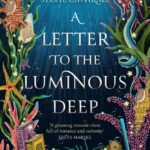
Genres: Fantasy, High Fantasy, Queer Protagonists
Representation: Major gay POV character, secondary gay POV character, secondary M/M, secondary asexual POV character, secondary bisexual character, queernorm world
Goodreads

Acclaimed Inda series within Sherwood Smith's epic fantasy Sartorias-deles universe • Military fantasy woven with courtly politics, vast worldbuilding, and diverse characters
Indevan-Dal is the second son of the Prince and Princess of Choraed Elgaer, destined to become his elder brother Tanrid's Shield Arm—his military champion. Like all second sons, he is to be privately trained at home by Tanrid, the brother whose lands he will one day protect.
When the King's Voice comes to summon Inda to the Military Academy, he might well feel foreboding, or even fear—war is imminent—yet youthful Inda feels only excitement.
But there are things that Tanrid hasn't prepared him for, and Inda will soon learn that the greatest threats to his safety will not come from foreign enemies, but from supposed allies within his own country.
Highlights
~the cinnamon roll is a military genius
~war academy is terrible with nicknames
~the girls are Up To Something
~pirates are not sexy
~Sia geeks out over toilet spells
Reader, this blew me the fuck away.
Banner of the Damned, which is set in the same world as Inda but takes place centuries later, has been one of my favourite books since I first read it over a decade ago. But the first few times I tried to read Inda, I bounced off it pretty hard – at the start of the book, the eponymous Inda begins enrollment at a military academy, and the blithe attitude towards older boys beating younger ones – in the spirit of making them better warriors – is an absolute Nope for me. It didn’t help that Inda himself, and therefore his friends, are all about 11 when the book opens – I’m not very interested in fart jokes and terrible nicknames.
I gave it another try this year, though, and I am so glad I did!!!
Inda is the second son of a noble family, which means he’s been trained his whole life by his older brother to defend their home and lands while said brother is away patrolling their borders. This is tradition in the kingdom of Iasca-Leror; the Marlovan culture revolves around war, the readiness to go to war at any time, and the skills necessary to waging war as effectively as possible. But the tradition of keeping second sons at home is upended when the king abruptly commands the noble families to send their second sons to the military academy, to receive training that has been historically reserved for firstborn sons.
This is already deeply strange, but Inda adjusts and adapts quickly and well. What’s vastly more complicated is what’s going on just outside his sphere – with his sister Hadand, living in the royal castle as the betrothed of the crown-prince; with the king’s sister-in-law, who is hiding a fierce brilliance behind her meek outward manner; and with her husband, the king’s brother, who is the Sierandael or war-leader – head of the military academy, and commander of the country’s armies in times of conflict.
Don’t let Inda’s age fool you: this is not YA. This is absolutely Adult, high fantasy with a lot of politics and intricate, detailed worldbuilding, and layers and layers of interwoven plotlines taking place on a smaller and larger scale. I was delighted to discover that we’ve also got a queernorm setting here, with gay, bisexual, and asexual representation all on the page; and although at first glance Inda’s country looks very patriarchal, the Marlovan women are not sitting around gossiping while the men swing swords. If I had to pick one aspect of this book to be my favourite, it would be what the Marlovan women are up to when the men aren’t looking. More on that in a little bit.
Sherwood’s prose is smooth and compelling, perfectly matched to the story and setting – it’s descriptive enough for me to enjoy immensely, without being flowery enough to put off readers who prefer plainer writing. That being said, I wouldn’t at all call it ‘bestseller style’ – that sort of bare-bones, action-focussed, fast-paced, easy-to-read style that makes for great beach reads or books to take with you on a plane. Between the prose and the layers and layers of story, Inda is very much a book that demands all of your concentration – but it’s easy to give it; this is not, at all, the kind of book where you really have to work to make sense of everything. The hardest part is keeping some of the fantasy-terms straight – for me, it was mostly Sierandael and Sierlaef, war-leader and crown-prince respectively – and there aren’t too many of them to confuse you.
The Story
So what’s the actual story? Well, Inda and a whole bunch of second-sons are whisked into the war academy, which their older brothers are not happy about, for a variety of reasons. And a good chunk of the first half of the book covers Inda’s developing friendships and various small (and not so small) adventures at the academy. But at the heart of that is the tension between Aldren – the Sierlaef or crown prince – and Evred, his younger brother. Aldren has a pretty intense speech impediment – I don’t know what the medical term for it would be, it’s far more severe than ‘just’ stuttering, to the point that he can rarely speak in sentences – and what I suspect is dyslexia, which has given him an intense hatred of the written word. A hatred that is viciously directed at his younger brother, who is multi-lingual and articulate and loves books and studying. Aldren’s insecurities about his speech and learning difficulties are turned outwards on the world; he’s convinced that almost everyone is mocking him or looking down on him all the time, and it’s twisted him into a pretty unpleasant person. He declares Evred a coward – the worst possible insult – but when Evred joins the academy, it’s immediately clear to everyone, including the other students, that Evred is only suffering from bad training – training which his older brother is supposed to be responsible for.
And yet, who’s going to contradict the crown prince?
It’s absolutely fascinating to see how the politics of the adult world are mirrored inside the academy; Aldren’s age-mates know he’s wrong about Evred, but that doesn’t stop most of them from trying to get on his good side, or following his commands, implicit and otherwise. Some of them, like Inda’s older brother Tanrid, are smart enough to see some of the bigger picture, brutally realistic about what Aldren is like, but also about the need to not be his enemy. And the longer the second-sons are at the academy, the wider the division between brothers becomes, as Evred, without meaning to, gathers real friends around him (whereas Aldren’s inner circle is made up of young men who want what being his friends means, but there’s no genuine friendship there). Evred has no desire to overthrow Aldren in any way, but it’s impossible for anyone to miss the dramatic difference between them…or how much better a king Evred would be.
Inda is a vital part of all of this…because he’s a tactical genius. As in, a genuine genius when it comes to battle strategy. But that genius doesn’t come with arrogance; it’s almost as if he doesn’t realise how good he is, except that of course he sees how often his plans work out. He manipulates the people around him without even realising he’s doing it – and he does it, not to set himself above them, but to smooth the waves and flatter abrasive personalities and give the credit for his successes to other people. It’s marvellous, and it’s very funny to see the bullies blink in confusion as Inda deferentially gives them all the credit for triumphs that are absolutely all his own. Instead of posturing, or standing up, or yelling down idiots who want to be in charge, Inda just arranges things to fall out in the best way possible, as economically as possible. And if that means someone else gets the acclaim – that doesn’t bother him at all.
Inda is the center of the venn diagram that is the academy’s politics and the adult world’s politics, because the Sierandael – the king’s brother Tlennen, the country’s war-leader, Aldren’s uncle and mentor – is Very Alarmed by him. Tlennen is…probably the best villain I’ve seen in a long time, one of my favourite villains, because he doesn’t believe he’s a villain at all. He’s passionately loyal to his brother – he has no desire to be king – and he wants the best for his country. It’s just that his vision of Best doesn’t match up with that of anyone else reasonable – Tlennen wants war, and plenty of it, because how else is a country of warriors supposed to stay strong? He’s spent Aldren’s life grooming him, encouraging and flattering and spoiling him – which makes Inda’s loyalty to Evred a terrible threat, because with Inda at his side, Evred could wield far more power than Tlennen wants. Power he believes should be in his hands instead, because who else can be trusted to use it properly?
But he is absolutely a villain, and it’s almost heartbreaking, because so much of the harm he does is completely unintentional; he has no idea that he’s undercutting his brother’s power, or damaging his rule, or getting his own people killed through the decisions he makes. This is perfectly depicted by one particular incident in the book, which I cannot talk about without spoilers, but good gods, this man should not be in charge of a yard sale, never mind an army! Another example I can talk about is Tlennen’s determined dismissal of naval warfare; never mind that pirates have been one of the biggest threats to the kingdom for generations; never mind that one of the kingdom’s surest enemies have been building themselves a powerful military fleet; never mind that building a fleet of their own is at the heart of one of the kingdom’s most important treaties. Tlennen is a traditionalist, and Marlovans traditionally fight on horseback. No one can control the ocean, so how can anyone win or lose a battle at sea? It’s enough to make you want to shake the man!
Tlennen’s obsession with power and threats to that power is so painfully ironic, because he has no idea that his wife, Ndara, is the heart of an empire-wide intelligence service of women; that she is responsible for teaching and training young noblewomen in the arts of spycraft, politics, and the highly secret women’s art/style of fighting. And a special few, such as Hadand, Inda’s sister and Aldren’s betrothed, are also carefully and delicately trying to tease out the secrets of magic from ancient historical sources – magic exists, but aside from a handful of fairly basic spells, the Marlovans don’t have much of it. And would like more, please and thank you.
I loved, so much, everything to do with the Marlovan women in this book. I love the dynamic between them and their men; I love the sense of connection and loyalty they all have to each other; I love their intelligence networks and alliances; I adore the odni, the women’s secret fighting style, and the design of it, the reasons for keeping it hidden and secret, what it’s used for and meant to be used for if it ever becomes necessary. It’s not that women are secretly pulling the strings of the patriarchy, because they’re not. But…gods, I can’t explain it without getting into spoilers. YOU NEED TO READ THIS BOOK OKAY?
It’s just layers and layers of politics and friendships and family and secrets woven in and out of each other. This is not the book for someone looking for quests and epic magic; this is a book about intrigue and battle, and the various forms those two things can take, and what happens to those caught in the riptides of politics and tradition. I adored it utterly, but someone looking for something fast-paced and action-heavy (although Inda does have its share of war-games and deadly battles) should probably look elsewhere.
The Worldbuilding; aka, Sia Geeks Out
Now for the worldbuilding, because GOOD GODS, PEOPLE, THE WORLDBUILDING! I could wax poetic about it for hours and hours and HOURS, but I’m going to try and limit myself to talking about two specific things, and how freaking clever and excellent they are.
Magic things.
The first thing is the Waste Spell, an extremely basic charm anyone and everyone can cast to vanish bodily waste – even when it’s still in your body. You never again need to wonder when exactly the heroic main characters are going to the toilet in-between all these adventures; in Smith’s world, there’s a spell for that. It also lets those who have them deal with their periods – no more pondering on how exactly characters are dealing with menstruation while on their quests – and functions as 100% effective contraception by vanishing any ejaculate after sex.
!!!
Listen, I am aware of how hilarious and nerdy it is that one of my favourite things about Smith’s worldbuilding is a spell for magicking away human excretions but I am not sorry. It’s such a simple thing, but it has such huge ramifications! Besides neatly solving some Common Fantasy Problems (because seriously, how do adventurers manage their periods???), it also creates enormous ripple effects in the various cultures of Smith’s world – for example, sexism is far less of a Thing when women can control when they get pregnant. Views on sex itself become much more liberal, and cultures become far more sex-positive, when you take the possibility of pregnancy out of the equation (and don’t have some puritanical religion to brainwash you with the idea that pleasure is bad). The Marlovans don’t attach any morality to the sex act, and most of them make regular visits to the sex workers of their choice – and the sex workers themselves are not looked down upon for their choice of career. It’s pretty damn awesome.
The second thing is another spell: the Birth Spell. This one is much more hit and miss, and no one knows why, but basically, it means anyone – usually a couple, but a single individual can do it too – does the spell, and…a baby appears. One with characteristics of the person or people who said the spell.
The Birth Spell doesn’t always work, and sometimes people have to try dozens or even hundreds of times before it does work. But just the fact that it exists gives so much more room for queerness to be normalised; there’s no more panic if the monarch isn’t heterosexual, because they can still make a baby with their official spouse (we have not, as yet, met any same-sex couples who’ve used the Birth Spell together in this series) and spend the rest of the time with their same-sex partner. Ndara’s sex-repulsed asexuality doesn’t set off any kind of crisis of inheritance because she and her husband can use the Birth Spell to have a baby instead. Marlovans seem to consider marriage as a thing only between men and women, but nobody cares about anyone else’s sexuality; the Waste Spell as contraception means no illegitimate children, the Birth Spell ensures there’s always someone to inherit, and voila! Everyone can have sex (or not!) with whoever they like.
All of this makes me incredibly happy.
I won’t go into details on the rest of the worldbuilding, or this will turn into a thesis. But I want to say that this world Smith has created doesn’t feel like fiction; it feels like a real place, as though you could step through the pages and enter an already-extant world. From the shields to the cutlery, the Marlovan’s realm rings true, and even more impressively, so do the countries beyond it. When I say the world feels real, I’m not talking about one kingdom; I mean I fully believe in the entire planet Smith has created. There are no contradictions, no that-doesn’t-make-sense, nothing that does not fit perfectly into the whole. It’s truly masterful stuff, and I cannot wait to learn more about it in subsequent books!
The Feels
Consider this something of a warning: Inda made me ugly-cry. This isn’t grimdark, it’s not gory and bitter and depressing in the slightest. But Inda‘s characters are all playing for the highest of stakes – even if a lot of them don’t even know the game exists, never mind that they’ve been pushed onto the gameboard – and the Marlovan culture is a war-based one. The rot in the king’s house spreads, and people use their power in ways they shouldn’t, and also pirates are not fun. Smith understands that to make a story real, to give conflict like this real meaning, there have to be costs, and losses, and some of them hurt so much.
I absolutely adore this book, but Smith’s world isn’t candy and rainbows, and she’s not afraid to go there. You know how it’s hard to really be scared, with most books, because you know the author isn’t actually going to do it, no matter how bad the situation looks you know everyone you care about is going to be okay?
This is not like that.
In Conclusion
I’m so mad it took me so long to read this, and I will not be wasting time diving into book two. Don’t make my mistake; if you’re looking for casually queernorm political fantasy, with detailed worldbuilding and characters you’d fight to the death to protect, GO READ THIS BOOK IMMEDIATELY!







Leave a Reply